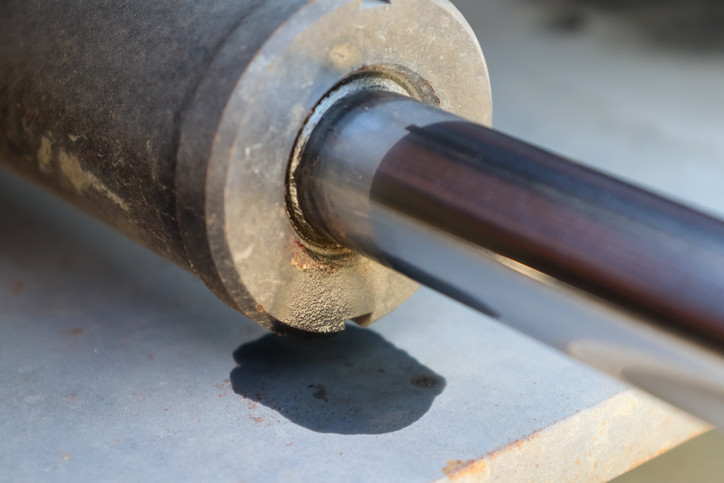The Exact Hydraulic Fluid Viscosity – Why is it Important?

We all tend to think Viscosity simply refers to a fluids thickness. However, it’s really all about a fluids “resistance to flow”. And because in hydraulics, a fluids resistance to flow is an exact science, selecting fluid with the right viscosity, is crucial. It can affect all parts of your system, particularly around lubrication and power transmission. Find out why we say “Go with the Flo”….
Viscosity - High or Low?
Fluid viscosity influences all parts of a hydraulic system, including power transmission, lubrication, and heat dissipation. Optimal viscosity ensures mechanical parts move smoothly, without friction. If viscosity is too high, friction increases, leading to sluggish operation, and eventually your machines will just stop. Conversely, low viscosity raises the risk of internal leakages, as shown below, and compromises pump and motor efficiency.
Power loss
Moreover, viscosity affects volumetric efficiency, which measures power loss due to internal leakage between moving parts. Thinner fluids, due to lower viscosity, exacerbate energy loss through these gaps, reducing system responsiveness and longevity, while increasing heat and wear’n’tear.
Fluid Film (not a new movie called Fluid)
Hydrodynamic lubrication, facilitated by hydraulic fluid, prevents direct contact between moving surfaces by forming a thin oil film – this is Fluid Film. Balancing viscosity is crucial here; low viscosity reduces film thickness, raising the risk of surface contact, while high viscosity increases friction and heat generation.
Cavitation
A phenomenon resulting from insufficient oil supply for system speed, leads to pressure differentials and erosion. Higher viscosity oils are slower to pump, making them more prone to cavitation.
Filtration Problems
Filtration ability is essential for removing debris and contaminants from hydraulic fluid. Higher viscosity oils pose challenges in filtration, resulting in increased pressure drop across filter elements.
Getting Rid of Heat
Effective heat dissipation is vital for preventing component overheating. Hydraulic fluid absorbs and transports heat away from critical parts. However, as fluid viscosity decreases with temperature rise, maintaining an adequate viscosity index is crucial to retain essential properties at operating temperatures.
Getting Rid of Air
Air release capability is another significant aspect influenced by viscosity. Thicker oils release air slower than thinner ones, impacting system efficiency and cavitation risk. System designers mitigate this by incorporating reservoirs to allow air escape, particularly with high viscosity oils.
Conclusion
So, whilst we say, “Go with the Flo”, you still need to be hyper aware of your fluid viscosity. Hydraulic fluid viscosity is a multifaceted aspect with far-reaching effects on system processes. Selecting the appropriate viscosity for operating conditions is paramount for system efficiency and longevity. In extreme conditions, higher viscosity fluids may be necessary to keep your machines running.




